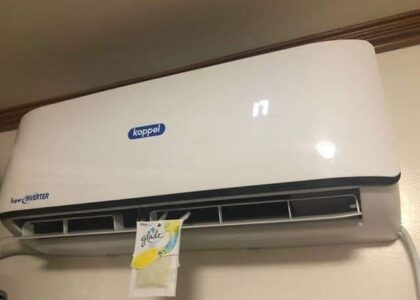The subject “contradiction against house cleaning” already testifies to a conflict-ridden situation. “Objection” is an indication of differences of opinion that are already open and, above all, being settled in disputes. In contrast to apartment cleaning, the subject of house cleaning occupies tenants and landlords alike, albeit from different points of view. In principle it is annoying for both parties.
The landlord wishes a cleaning for the preservation of the (living) value of the real estate justifiably. The tenant – depending upon personality – wishes a living, cleaned real estate and a smooth getting along with the landlord. But what is really behind it? What possibilities do both sides have? What can one do to settle such a conflict?
Objection to house cleaning
House cleaning does not only have an emotional side, which we have briefly touched on in the introduction. From an objective point of view, the costs of house cleaning are part of the so-called operating costs of a property. If a property is rented, especially if there are several apartments, then the landlord is responsible for cleaning the common rooms and paths. This includes corridors, stairs, attics, cellars, entrances and laundry rooms.
Costs of cleaning the house in the tenancy agreement
The costs of Carpet Cleaning Services Parker in the common areas and paths are among the allocable costs. The landlord may therefore agree in the tenancy agreement to allocate the costs of cleaning the house to the tenant. How the costs are apportioned can vary greatly. Often a so-called form rental agreement is used as a rental agreement.
There is usually also a column operating cost, in which the individual operating costs are designated and also the allocation of the same on the tenant is fixed. In addition, there are cases of leases, in which simply to the house rules located in the plant one refers.
House cleaning by caretaker or landlord
Particularly in condominium complexes, the task of house cleaning is often transferred to a building cleaning service or a possibly existing caretaker. If the landlord of a real estate organizes the cleaning, then here as well as in the aforementioned cases costs for the cleaning develop. In the operating cost account these costs are shown later. If a reallocation of the costs of the house cleaning is agreed upon, these costs are then imposed so on the tenant.
If in the house rules a cleaning obligation for the tenant is agreed upon and the costs for a house cleaning are shifted at the same time on the tenant, a contradiction results here naturally. The tenant cannot take the tenant into the cleaning obligation at the same time and allocate the costs of the house cleaning to him. In this case the cleaning obligation in the house rules is ineffective.
Objection: if the tenant does not follow his cleaning obligations
Pay or clean? This is a question that divides spirits these days. In post-war Germany, there was a consensus that cleaning by the tenant was the rule and that cleaning the corridors and stairwells once or twice was one of the tenant’s affordable duties.
Today, the zeitgeist is playing a trick on the landlord-tenant team. There are the comfortable tenants who are happy when they can get rid of the cleaning by paying a small fee. But there are also the economical tenants who want to avoid any costs for cleaning and prefer their own work. The very existence of the two factions can lead to tensions in the tenant community. While the one does not want to take the “laziness of the other” in the pocket, the other does not want any trouble because of the “quitters and thin board drills”.
Where punctuality and comprehensive compliance with the cleaning obligation begin and end, there is of course sufficient material for disputes. The appropriateness of the costs for an external cleaning of the house can also give cause for discussion. The topic becomes particularly exhausting for the landlord, if he does not live with in the house and the topic by regular complaints of individual tenants over the careless execution of the cleaning by their housemates becomes aware.
Uniform regulation of house cleaning
Above all, cleaning must be regulated uniformly. If house cleaning by a cleaning company together with cost allocation has been agreed with the existing tenants, the landlord cannot make an exception with a new tenant in the form of an individual agreement on cleaning by the tenant. Also it is not possible to tilt and change existing agreements afterwards again.

Objection to the house cleaning by the tenant
A case of conflict is the situation when the tenant repeats his obligations and does not comply with the request. At some point the landlord will reject the unreliable performance of the tenant (“objection to the house cleaning”) and want to have the cleaning carried out by a specialist company.
In addition, conflict case is the situation, if the tenant does not want to accept the house cleaning organized by the landlord, because this is either badly carried out or appears overpriced to him. In this case it can come on the part of the tenant to the contradiction against the house cleaning.
In principle, however, the house cleaning by a caretaker or an outside company makes sense. Experience has shown that cleaning by a third party leads to an improvement in domestic peace. Assignments of blame to others because of neglected or negligent cleaning are void.










